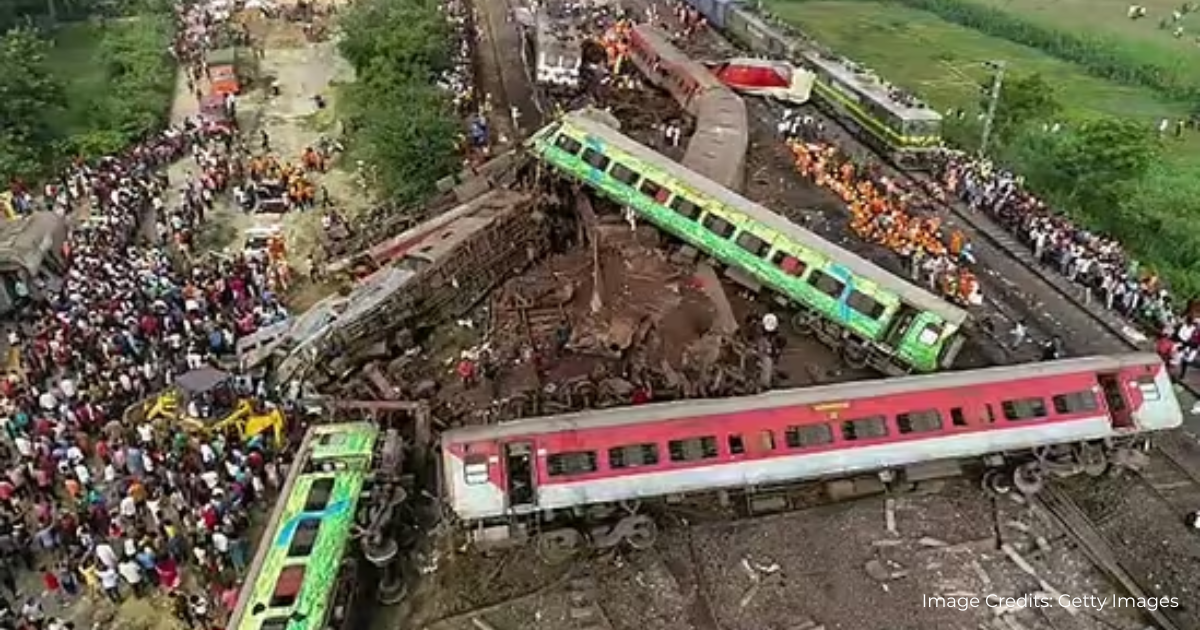Now Reading: The Role of Social and Economic Position in Valuing Lives: India’s Recent Train Tragedy
-
01
The Role of Social and Economic Position in Valuing Lives: India’s Recent Train Tragedy

The Role of Social and Economic Position in Valuing Lives: India’s Recent Train Tragedy
Introduction :
India, a country with a rich history and a thriving railway infrastructure, was hit by a catastrophic train catastrophe in its eastern area, the country’s biggest rail disaster in the last two decades. This tragic incident, claiming the lives of over 270 individuals and leaving more than a thousand injured, has once again sparked discussions on rail safety and the perceived value of human lives. In this blog article, we will delve into the contentious topic of how social and economic positions might impact the government’s response and evaluation of the worth of individual lives in the midst of such calamities.
The Tragic Incident and Initial Government Response:
On a fateful evening, two passenger trains collided in the Balasore District of Odisha State. A stationary goods train was struck by one of the trains at full speed, forcing it to derail, and thus led to the collision. The subsequent impact led to another passenger train hitting the dislocated cars, resulting in an immense loss of life and extensive injuries. The tragic event has raised concerns about the safety measures and infrastructure of India’s rail system, which is heavily relied upon by millions of people on a daily basis.
Government Response and Questions of Value:
In the aftermath of the train tragedy, questions arise about how the government values the lives affected by such disasters. Critics argue that social and economic factors often play a significant role in determining the extent of support and attention received from the authorities. It is unfortunate but true that marginalized communities, often struggling with poverty and lacking political influence, tend to face greater challenges in receiving adequate compensation, support, and justice in the wake of such incidents.
Impact of Social Position:
The social position of individuals, including their socioeconomic status, caste, and regional background, can significantly influence the response they receive from the government. Those belonging to privileged classes or with powerful connections are more likely to garner attention and resources. Their voices are amplified, leading to quicker and more comprehensive action. They may receive immediate medical assistance, financial aid, and counselling to help them cope with the aftermath. Conversely, individuals from marginalized communities may find themselves struggling to navigate a system that is often biased against them.
Economic Position and Rail Safety:
The economic position of a region also plays a crucial role in determining the government’s commitment to ensuring rail safety. Regions with higher economic significance, such as major urban centres or industrial hubs, tend to receive more attention and investment in infrastructure development and safety measures. Unfortunately, this means that areas with lower economic importance may be neglected, resulting in substandard safety protocols and increased risks for passengers. The tragic train crash serves as a reminder that the allocation of resources and prioritization of safety measures should not be determined solely by economic considerations.
Addressing the Disparities:
To prevent tragedies like the recent train crash, it is crucial for the government to acknowledge and address the disparities that exist in valuing human lives. The focus should shift towards a more egalitarian approach that prioritizes the safety and well-being of all citizens, regardless of their social or economic backgrounds. This includes ensuring equal access to infrastructure improvements, safety measures, and effective emergency response systems across the country.
In addition, there is a need for comprehensive education and awareness campaigns that highlight the importance of rail safety and encourage responsible behavior among both passengers and railway staff. By promoting a culture of safety, the government can work towards minimizing the risks associated with train travel and protecting the lives of all individuals.
Conclusion:
The devastating train tragedy in India highlights the complex issue of how social and economic positions can influence the government’s perception of the value of human lives. It is essential for authorities to recognize and address these disparities, ensuring that all individuals receive equal attention, support, and justice in times of crisis. By striving towards a more equitable society where the worth of every citizen’s life is recognized and protected, India can move closer to a future where tragedies like this become a thing of the past.
Author: Shruti Gala
Edited By: Apoorva Mehta










